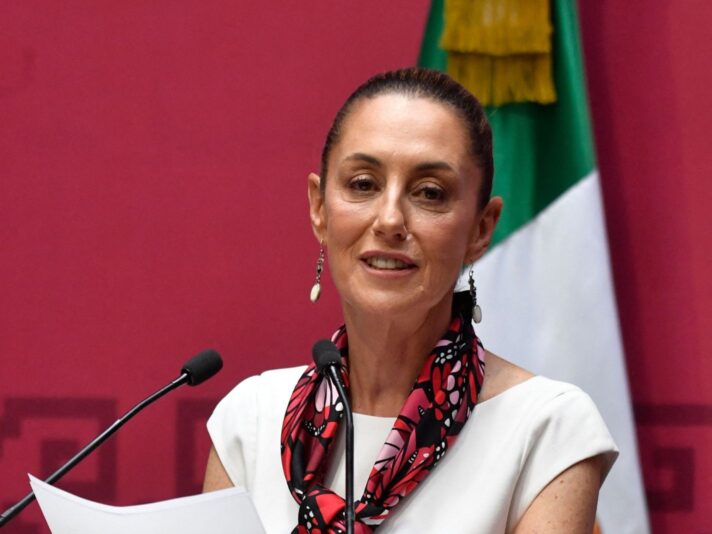Claudia Sheinbaum: A Historic Election and Its Implications
Claudia Sheinbaum has made history by becoming Mexico's first female president, a significant milestone in the nation's political landscape. Her election marks a pivotal moment not only for gender representation in politics but also for the future direction of Mexico under her leadership. This article delves into the details surrounding her election, her background, and the challenges she faces as she steps into this historic role.
Election Overview
On June 2, 2024, Claudia Sheinbaum won the presidential election in a landslide victory, securing her position as the first woman to lead Mexico in its over 200-year history of independence. Sheinbaum, a climate scientist and former mayor of Mexico City, ran a disciplined campaign that capitalized on the popularity of her predecessor, Andrés Manuel López Obrador. Her victory was not just a personal achievement but a reflection of the changing dynamics in Mexican politics, where voters are increasingly looking for continuity and progressive policies.
Official Declaration
Following her victory, Sheinbaum was formally declared President-elect in a ceremony held in Mexico City. The legal ruling that confirmed her election had faced delays due to appeals, but it was ultimately resolved, allowing her to take the next steps toward her inauguration. This formal declaration is crucial as it sets the stage for her administration and the policies she intends to implement.
Background and Political Journey
Claudia Sheinbaum, 61, has a rich background in both science and politics. She holds a PhD in engineering and has been involved in environmental issues for many years. Her work on the Intergovernmental Panel on Climate Change contributed to the group receiving a Nobel Peace Prize in 2007. This scientific background has shaped her political agenda, which emphasizes sustainability and social equity.
Before her presidential run, Sheinbaum served as the mayor of Mexico City, where she focused on urban development, environmental sustainability, and social programs aimed at reducing poverty. Her experience in local governance has equipped her with the skills necessary to tackle the complex challenges facing the nation.

Key Policies and Priorities
As she prepares to take office, Sheinbaum has outlined several key priorities that will define her administration:
Continuity of Policies: She has pledged to continue the social and economic policies initiated by López Obrador, particularly those aimed at reducing poverty and inequality.
Strengthening U.S.-Mexico Relations: With the election of Kamala Harris as Vice President of the United States, Sheinbaum aims to rebuild and strengthen the bilateral relationship, focusing on migration, security, and economic cooperation.
Environmental Sustainability: Given her background, Sheinbaum is expected to prioritize environmental issues, promoting policies that address climate change and sustainability.
Economic Stability: Sheinbaum's administration will inherit a complex economic landscape, and she has indicated a commitment to maintaining stability while addressing the needs of the population.
Challenges Ahead
Despite her historic victory, Sheinbaum faces significant challenges as she steps into her role. The political landscape in Mexico is fraught with complexities, including:
Economic Pressures: Mexico's economy is facing various challenges, including inflation and the need for job creation. Sheinbaum will need to navigate these issues carefully to maintain public support.
Security Concerns: The ongoing struggle against organized crime and violence remains a pressing issue. Sheinbaum's administration will need to develop effective strategies to ensure public safety.
Public Expectations: As the first female president, Sheinbaum carries the weight of public expectations, particularly from women and marginalized communities who see her as a symbol of progress.
Global Reactions
The election of Claudia Sheinbaum has garnered attention from world leaders and international media. Many view her victory as a step forward for gender equality in politics, while others are keenly observing how her administration will handle the pressing issues facing Mexico.
International Relations
Her administration's approach to international relations, particularly with the United States, will be closely watched. Strengthening ties with the U.S. is seen as essential for addressing shared challenges, including migration and trade.

Claudia Sheinbaum's election as Mexico's first female president is a historic achievement that reflects the changing dynamics of Mexican politics. As she prepares to take office, her focus on continuity, sustainability, and international relations will be critical in shaping the future of Mexico. The challenges ahead are significant, but her background and experience provide a strong foundation for her leadership. The world will be watching closely as she embarks on this new chapter in Mexican history.
For more detailed information on Claudia Sheinbaum's election and her policies, you can visit the following articles:





